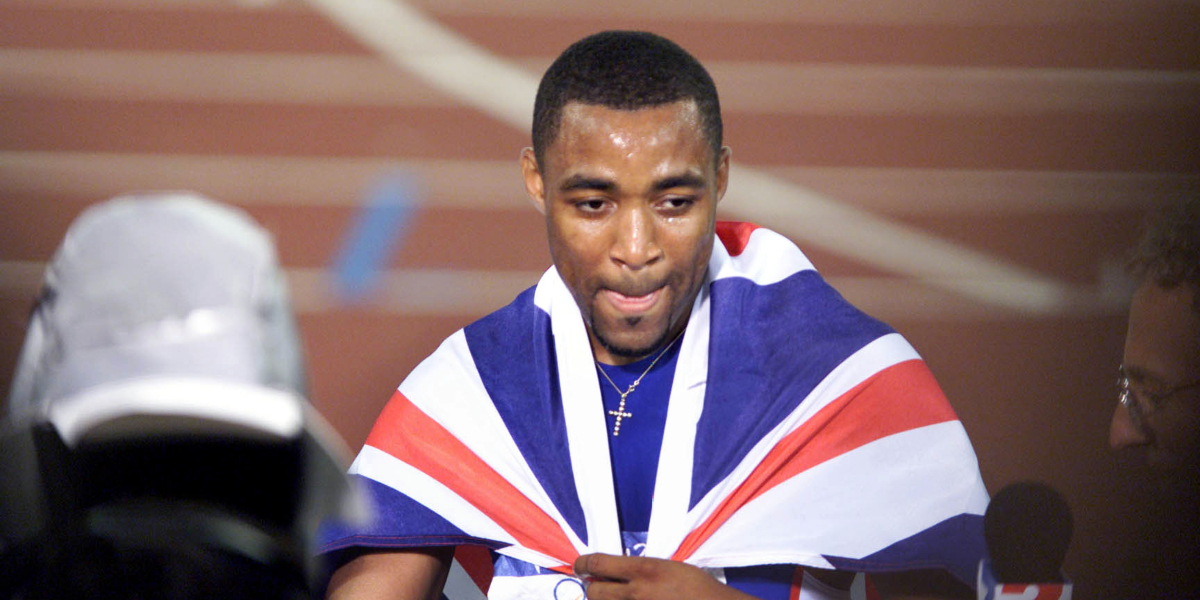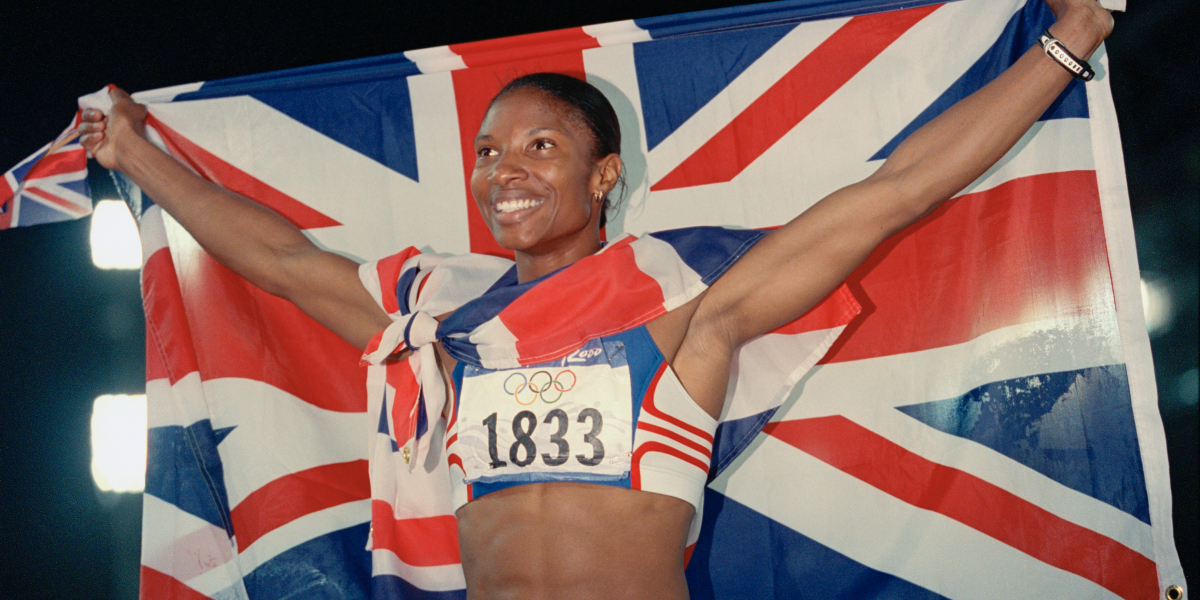
14th April 2020
YEAR 2000 THROWBACK: DELIGHT FOR DENISE; EDWARDS’ LEAP OF FAITH
This week we’re continuing our series of flash backs to memorable British moments in the sport over the decades. Here we rewind almost 20 years to a sensational Sydney and the 2000 Olympic Games.
By the time the Sydney 2000 Olympic Games kicked off in September of that year, it had been more than eight long years since a British track and field athlete had climbed the top step of the podium at the biggest event going.
However inside two glorious days Down Under those demons were banished as Denise Lewis became the first European to win an Olympic heptathlon title and Jonathan Edwards completed a triple jump triple crown.
Both experienced first-hand those Olympic Games in Atlanta in 1996 where the British team flew home without a golden glow with Edwards contributing one of four silvers and Lewis one of two bronzes.
Each reacted to their medal differently though – Edwards, as the world champion and world record holder, was the favourite for gold but was beaten by American Kenny Harrison. The fact that his 17.88m effort was the longest ever jump at the time not to win Olympic gold was little comfort.
Lewis meanwhile immediately set her sights on Olympic gold in Sydney following her bronze and by the time those Games rolled around she had twice won world silver, been crowned European champion and successfully defended her Commonwealth title.
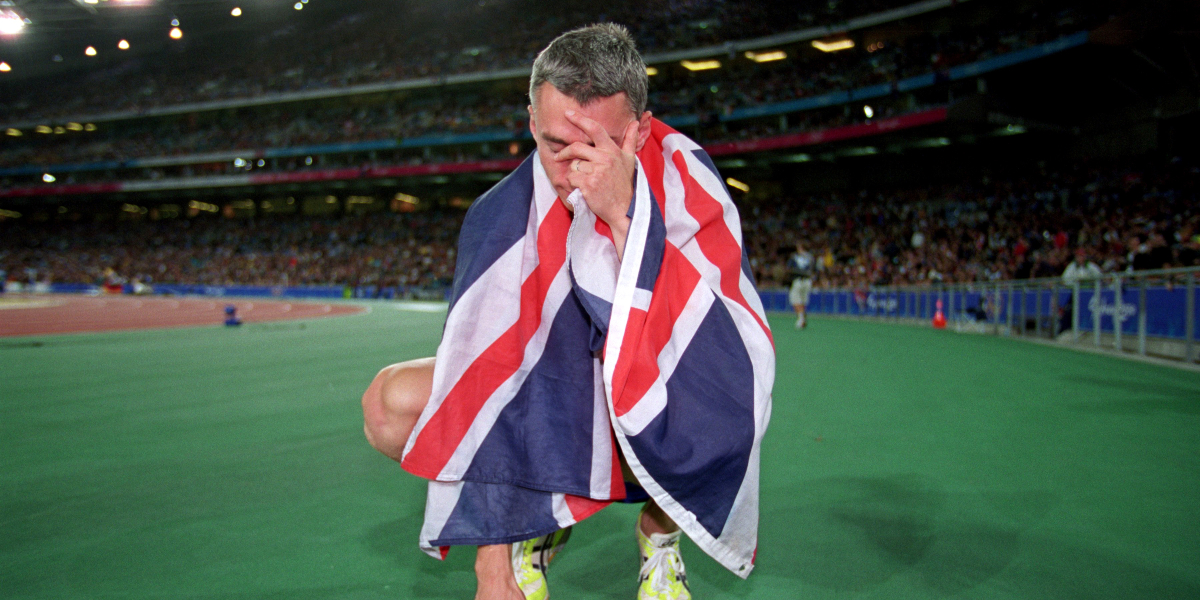
Lewis was the first of the two to open up their campaign on a morning that saw Sir Steve Redgrave win a record fifth rowing gold but had work to do after the first two events – the 100m hurdles and high jump – down in eighth after failing to go beyond 1.75m in the latter.
Then came Edwards’ turn in qualification for the triple jump final, which he cruised needing only two jumps to progress. Lewis meanwhile came out strong in an evening session that saw the British team officially get off the mark.
As Lewis won the shot with an effort of 15.55m and clocked 24.34 in the 200m to place third overall, Steve Backley – himself part of the Atlanta team that failed to win a gold, also claiming silver like Edwards – became the first Brit in any track and field event to win an Olympic medal at three Games.
Backley’s start was near perfect as she threw an Olympic record 89.95m in round two however heartache ensued as long-term rival Jan Zelezny bettered that with a 90.17m in the very next round and the Brit had to settle for silver again but with it his own piece of history.
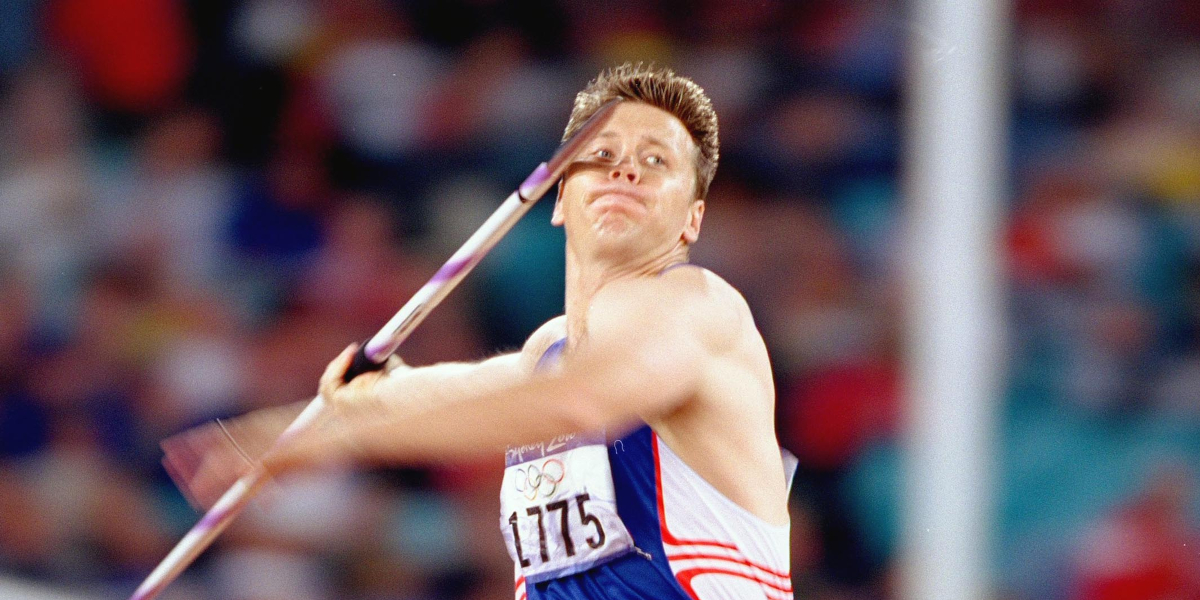
With the men’s triple jump set for 48 hours later, the next day was all about Lewis. She maintained third with a best of 6.48m in the long jump and stormed into the lead with comfortably the best javelin result compared to her nearest rivals, the only one to throw further than 50m with 50.19m.
By this point the six events had started to take their toll on Lewis, namely her strained Achilles, and a 43-point lead set up a real battle for gold in the 800m finale with Russian Yelena Prokhorova, who had similarly timed her charge well to that point.
Prokhorova won their heat in 2:10.32 but Lewis showed immense guts and determination to keep her at bay at the top of the standings after clocking 2:16.83 for a winning total of 6584 and a golden upgrade to the bronze from four years earlier.
So two medals in two nights for the British team – and that total would emphatically rise to five thanks to Edwards and brilliant bronzes from Kath Merry in the 400m and Dame Kelly Holmes in the 800m.
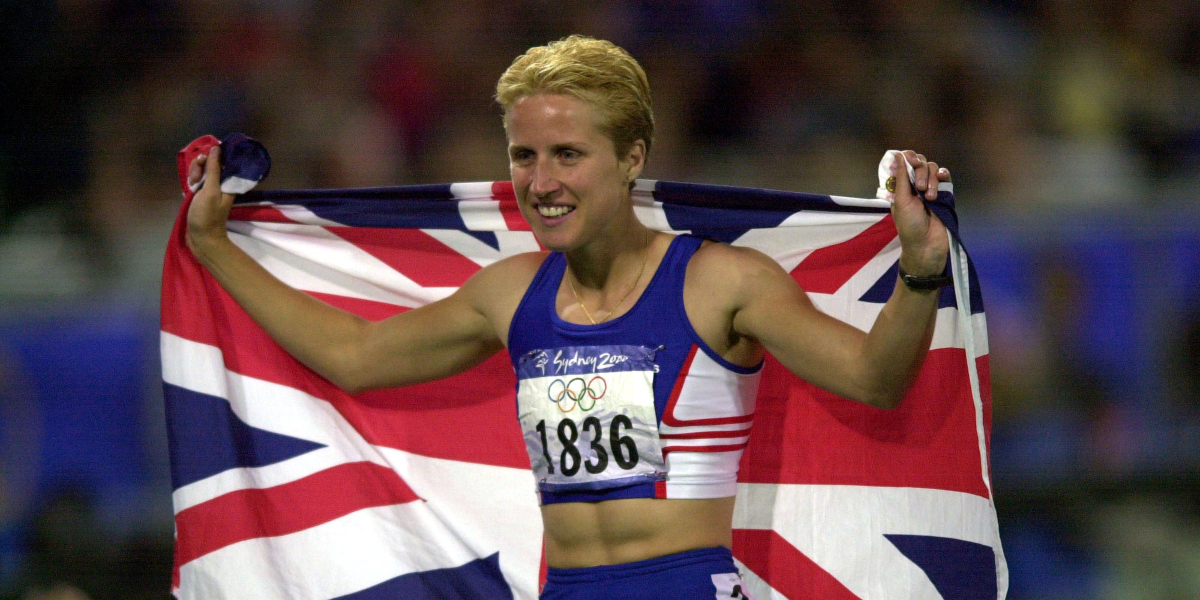
Just as Edwards was beginning his charge towards Olympic gold, Merry was lining up in arguably the most iconic final of the Games as home favourite Cathy Freeman stormed to gold in that women’s 400m in an all-one suit.
Merry ran the race of her life – in gold medal contention around the final bend – to finish third 0.07 ahead of fast-finishing British teammate Donna Fraser in a personal best 49.72 with Edwards, the oldest man in the triple jump final, taking command from the third round onwards after a leap of 17.71m.
Opening efforts of 17.12m and 17.37m set him up perfectly and no one would come close as Edwards finally claimed Olympic gold to complete a triple crown after that world title and world record in 1995 and European gold in 1998.
Holmes – who suffered the heartache of placing fourth in Atlanta – meanwhile looked to be heading for gold after surging into the lead of the women’s 800m final around the final bend. Still clear in front on the home straight, a disrupted build up to the Games saw Maria Mutola and Stephanie Graf overtake her before the line as she settled for bronze.
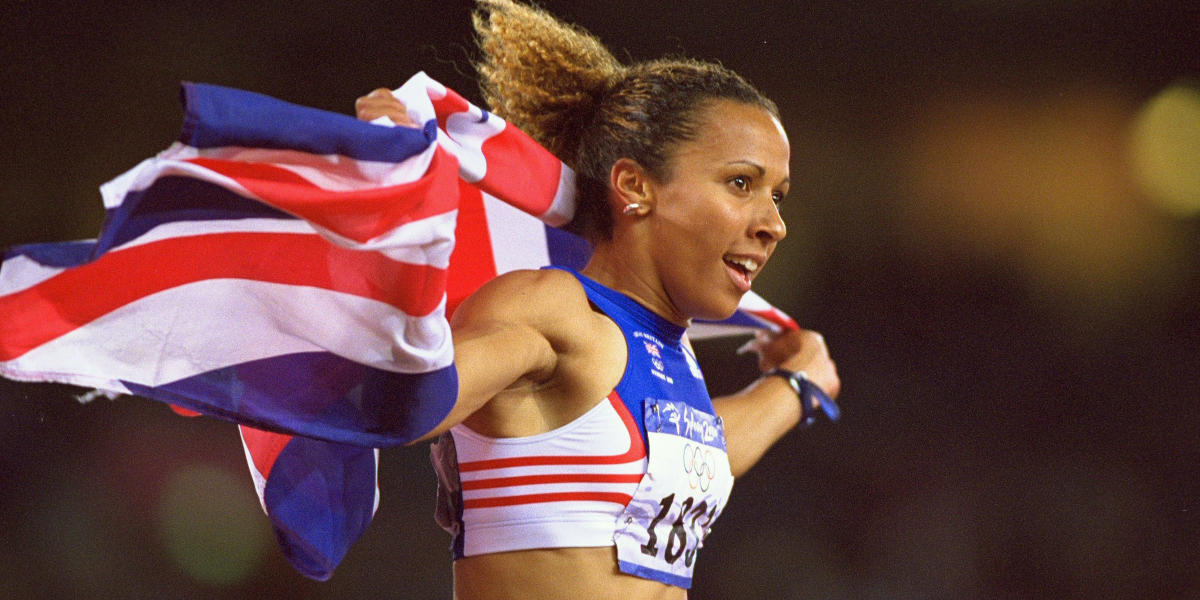
With her rivals going out hard over the first 400m, Holmes took her time as she initially sat on the shoulder of Mutola before making progress with 300m to go. She looked strong as she made the break but it wasn’t to be – Holmes would however get her moment four years later in Athens.
The British team weren’t done there however and Darren Campbell contributed a sixth and final medal with silver in the men’s 200m three days later. Sixth in the 100m final on the night Backley won silver and Lewis kickstarted her campaign, Campbell’s silver was seen by some as a surprise.
He clocked a personal best 20.13 in round two and went within 0.01 of it in the final as he clocked 20.14 for silver and his first and only major global medal in the 200m. Like Holmes, Campbell would have his own golden moment as part of the British 4x100m relay team in Athens in 2004.
